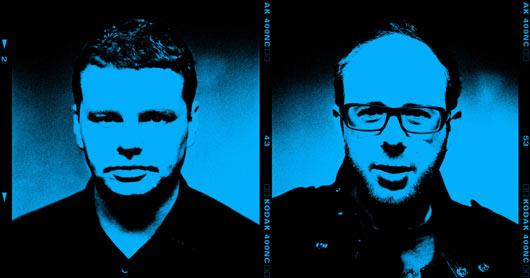
There was a time when being able to flawlessly match beats and select killer tracks that flowed like butter wasn’t only difficult, but rare and special. Putting that on a mixtape and getting it into the right hands secured you a gig, which could lead to great things.
However, the digital revolution in DJing has changed the game in many ways – some great, some not. Perhaps the largest change, however, is how to go about making a name for yourself in an extremely competitive and highly international market.
This site has gone into great detail on how to market yourself, secure your first gig, and be a better DJ all-round. But this still mostly deals with things on a local scale. And if you are looking to take your talents to an international market, the best way to do that is by making your own music. Here’s why:
1. You can achieve instant global recognition
Online mix hosting services have helped the “mixtape” trend continue into the digital age, and some DJs have even mixed their way to thousands of fans through brilliant social networking. But what is the most surefire way to get noticed by the biggest jocks in the industry, and of course, by their fans? Make a hit record. If your new hit winds up on Radio 1, you can be sure people from around the globe will know your name very quickly.
A fairly famous DJ once told me: “OK man, I’ll be straight up. You won’t make it through DJing. You will make it through productions. That’s the only way people around the world will recognise your name; otherwise why would someone in Romania know about you? No matter how good a DJ you are in your home town, unless you’re part of a residency to one seriously world-famous night, like Panorama bar or Fabric, it won’t happen through DJing.
“So get in there and get producing, then go to gigs and put the CDs of your tracks in the hands of the guest DJs who would play your sound, and then when you get signed to big labels people will take notice. Get what I’m saying mate?”
2. You’ll get respect
If it’s been said once, it’s been said a thousand times: it’s easier than ever to be a DJ today. I won’t beat a dead horse, but it just isn’t enough any more. So when you’ve spent years of your life (not to mention several grand) holed up in your apartment learning to make high quality dance music that one day gets released on Beatport, people respect that.

It shows you are truly serious about the music and about your craft. It shows you understand music on a fundamental level, which of course translates into “he’s probably a pretty good DJ, too”. It shows you have dedication, and are serious about being a part of the music scene on a deeper level.
The big jocks know this; they’ve been there too. And many of them love seeing new dedicated and talented young producers work their way up, and are willing to support them.
3. It’s more about raw talent
You have to analyse your strengths and weaknesses. I’m not brilliant at networking, and the only way to get gigs where I live is to spend countless hours out at the clubs making nice with the right people, then countless more trying to get people come to your show. You’re a promoter, DJ and PR agent rolled into one.
I realised this a few years ago and knew this wasn’t for me. I figured I could get much further by sitting at home in front of my computer and learning a craft. Networking is a craft to be sure, but for someone like me, reading books and blogs on things like sound engineering and being able to set my own hours and work from home is how I can best spend my time achieving the results I desire, and it’s starting to pay off.
I know a vast amount more about making music than I did two years ago, and I’m learning more every day. And hopefully with enough work, one day I’ll have tracks big enough to make real waves. Then the sky is the limit.
4. You gain musical understanding
Putting in countless hours learning what instruments, percussion and synthesisers are used to create a desired musical effect has given me a much deeper understanding of the music than I had when I was only a DJ. And if you are a serious DJ, you know how much time you spend analysing tracks to begin with. As a result, my DJ sets have gotten tighter and cleaner over time, with much less effort spent combing though Beatport. I recognise keys, rhythms, instruments, and basslines that will work together much easier than I used to.
This of course comes to anyone who spends enough time around music, be it through DJing all the time, or just constantly having Pandora going in the background – but producing amplifies it.
5. It gets you gigs
What’s the easiest way to start touring the globe as a DJ? Do what they used to do in the rock’n’roll days: Write a huge single that sells like crazy. Promoters see a rabid fan base and know you will pack a show.

The evidence is currently clearest with some of the overnight sensation dubstep acts. Instead of slowly working their way up gig after gig, they spent a few years in the studio, and by 19 or 20 had a hit record on their hands.
Now of course there is a bit more to it than that. Getting your hit track into the right hands can be tricky, for instance. But if you do happen to write the next mega-hit, you can guarantee that with proper marketing and exposure, eventually that right person will hear it.
Easier said than done….
I do understand that when you are just starting out DJing, music production can seem to big a task to tackle. Learning an in-depth, high-end workstation like Ableton Live or Logic is difficult, and can take years to start getting good at. But just as you worked hard, learned your DJ software inside and out, and eventually learned to mix and maybe even got some gigs, with dedication and hard work you can learn to make your own music too.
• American house DJ and producer Chandler Shortlidge in a little over a year has gone from a bedroom producer to having his track “Shenzaz” (Red Sky EP on Purple Gate Records) go to #13 of the DJTunes.com top 100 Tech House chart.
Have you considered the production route to DJing success? Have you managed to get gigs through your own productions? How closely do you think production and DJing are linked? We’d love to know your thought in the comments.








